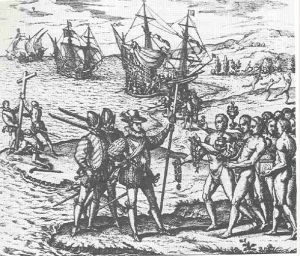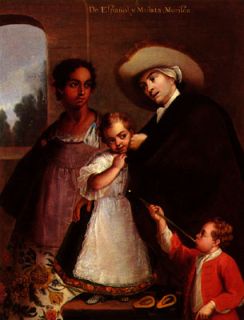
Exploring the history and experiences of mixed heritage persons and inter-racial relationships across the world

Exploring the history and experiences of mixed heritage persons and inter-racial relationships across the world
 Colonialism has been with us for a long time, the great empires, e.g. Egyptian, Greek and Roman are stories of colonial imperialism in history. For most people though colonialism is reserved for the taking over overseas terrotories often on different continents.
Colonialism has been with us for a long time, the great empires, e.g. Egyptian, Greek and Roman are stories of colonial imperialism in history. For most people though colonialism is reserved for the taking over overseas terrotories often on different continents.
Starting with the Portuguese sailor, Bartolomeu Dias who was the first to round the Cape Of Good Hope and who later played a hand in the successful 1498 arrival of his fellow countryman Vasco da Gama to Goa in India, the Portuguese led the way in searching for new trade routes to the Far East particularly India. If you were to look at a colonial map of the world in 1800 (http://commons.wikimedia.org/wiki/File:Colonisation_1800.png), you would notice that the vast territories held by European countries were in the New World, the Americas. Only little bits of coastline in Africa and India could have been considered colonies - probably more like trading areas.
Portugal and Spain, following on from their great discoverers like Columbus and Da Gama, led the charge in the search for new territories. These countries had several treaties, papal directives and unspoken agreements that allowed them to expand without the distraction of war. However, the other growing powers of the world, England and France were not about to let them take it all.
The Portuguese lead in the Age Of Discovery in the Atlantic and along the African coastline and their success in this area set them up for the lucrative trade in precious metals, sweet salt (sugar) and slaves which they, the Portuguese themselves, used in places like Madeira where 10% of the population were slaves by the 16th century. It also set them up for the later cross Atlantic slave trade.
It was in 1492 with Christopher Columbus' discovery of the new world for the Spanish that attention turned to the new world. The Spanish were the leaders in claiming territories in the new world, especially since the vast majority of the territories where off limits to the Portuguese due to the Treaty of Tordesillas. The Portuguese just managed to claim Brazil, either by devious means or by mistake.
 During those early days, it is difficult from public historic record as to how much cross cultural cross breeding was taking place. Were local women, if there were any, having Portuguese babies? It is hard to imagine they were not. Most of the trading posts were manned by men. Men alone far away from home are likely to find some pleasure - whether romantically, by coercion or simply as a trade of favours - in the arms of the local or imported, possibly slave, females. Certainly in the later part of the colonialism period, more inter-racial breeding took place.
During those early days, it is difficult from public historic record as to how much cross cultural cross breeding was taking place. Were local women, if there were any, having Portuguese babies? It is hard to imagine they were not. Most of the trading posts were manned by men. Men alone far away from home are likely to find some pleasure - whether romantically, by coercion or simply as a trade of favours - in the arms of the local or imported, possibly slave, females. Certainly in the later part of the colonialism period, more inter-racial breeding took place.
The French and later the British expansions into the North American arena were somewhat different to the earlier Portuguese and Spanish efforts. The French in particular did not have a settler mentality and were more interested in trading, mainly furs, with the local populations. They leave a trace of their interaction with the local people in the Metis population.
Britain's earlier expansion came at the expense of the other powers, namely the Dutch and the French, during European wars and the crown in jewel was the thirteen colonies in in North America which in 1783 after a war of independence became the USA.
Apart from the Metis, not much evidence is left of any inter-racial relationships with the Native Americans. It would probably be expected that some of the peoples claiming Native American heritage will probably have some European genes from those earlier times but much more likely from later interactions as the expansion of the USA and Canada continued.
What this earlier part of colonialism produced was the need for lots of labour to power the huge potential of the new lands. The relative depletion by war and disease of the local populations of the Americas set the world up for the massive upheaval of the cross Atlantic slave trade.